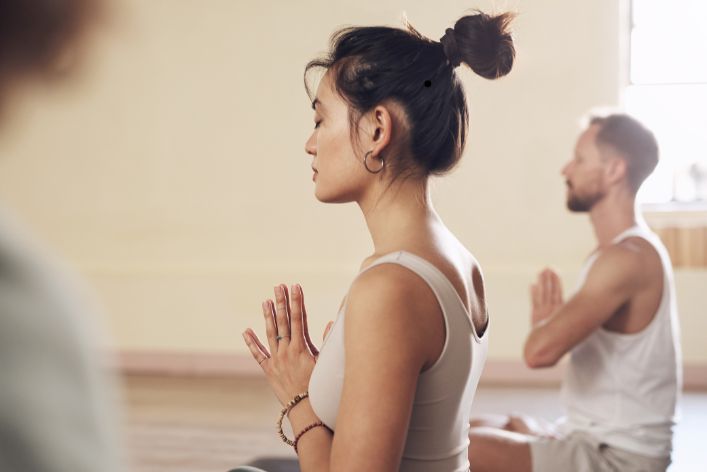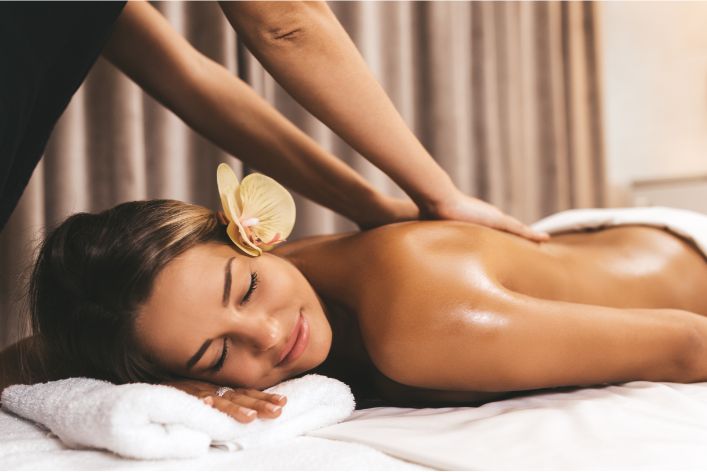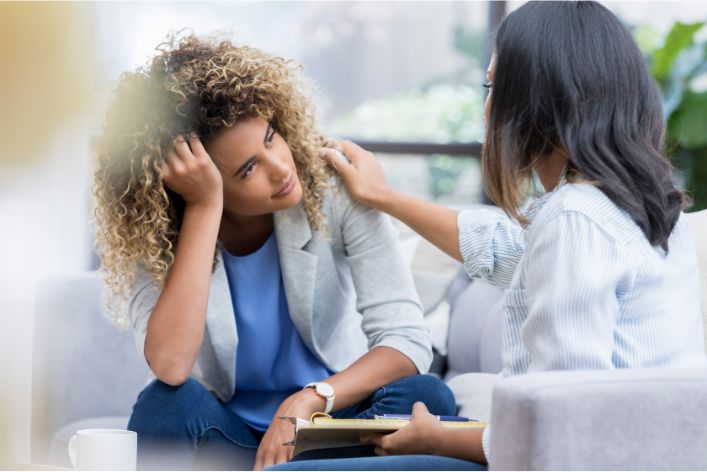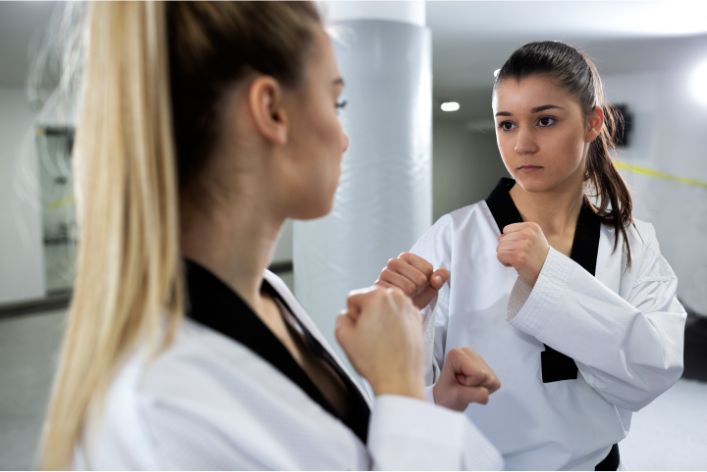Last Updated on May 16, 2023
Sun protection has become increasingly important in today’s world, as UV rays can cause significant damage to our skin. In this blog post, let’s discuss the various types of skin damage caused by UV rays and the importance of taking steps to protect ourselves against them.

Skin Damage Caused by UV Rays
UV rays can penetrate the skin and cause damage in a variety of ways. One type of damage is sunburn, which can lead to peeling, blistering, and even skin cancer. Additionally, UV rays can cause premature aging of the skin, leading to wrinkles and age spots.
Statistics show that skin cancer is on the rise, with 1 in 5 Americans developing it in their lifetime. This is a sobering reminder of the importance of protecting our skin from UV rays. By wearing sunscreen, seeking shade, and wearing protective clothing, we can significantly reduce our risk of developing skin cancer.
Basically, protecting our skin from the damaging effects of UV rays is crucial in maintaining healthy skin. By taking simple steps to protect ourselves, we can reduce our risk of developing skin cancer and keep our skin looking youthful for years to come.
Read: Are There Impacts of Perfume on the Skin?
Health Effects of Overexposure to Sun
Spending time outdoors on a bright sunny day may seem like the perfect way to spend a lazy afternoon, but overexposure to the sun can have serious health effects. The harmful effects of the sun’s UV rays on the skin are well-known, but this is just one aspect of the damage that can be inflicted on the body
Health issues caused by overexposure to the sun
- Sunburn is one of the most common health issues associated with overexposure to the sun. It is caused by the skin being damaged by UV rays, leading to redness, inflammation, and blistering. Despite being a temporary health issue, repeated sunburns can lead to long-term skin damage and an increased risk of skin cancers.
- Eye damage is another result of overexposure to the sun. Ultraviolet radiation can cause damage to the eyes, leading to cataracts, macular degeneration, and an increased risk of conjunctival cancer. Without proper protection, the eyes are exposed to as much as five times more radiation than the body.
- Skin cancer – Ultraviolet radiation from the sun is one of the leading causes of skin cancer. Overexposure to the sun’s UV rays damages the skin cells, leading to the formation of abnormal cells, which can develop into cancerous growths. The most common types of skin cancer caused by UV exposure are basal cell carcinoma, squamous cell carcinoma, and malignant melanoma.
- Heatstroke – Overexposure to the sun can cause the body’s temperature to rise and lead to heatstroke. Heatstroke is a severe medical emergency that can cause a range of health issues such as seizures, organ damage, and even death. Young children, the elderly, and those with certain medical conditions are at greater risk of developing heatstroke.
Statistics to support the information
According to the Skin Cancer Foundation, skin cancer is the most common form of cancer in the United States, and one in five Americans will develop the disease in their lifetime. Additionally, the American Academy of Ophthalmology estimates that up to 12% of all skin cancers occur on the eyelids.
Furthermore, the Centers for Disease Control and Prevention report that over 7,000 deaths in the United States each year are caused by extreme heat. Heatstroke, a potentially fatal medical emergency, is one of the most severe consequences of overexposure to the sun.
Preventing overexposure to the sun
Although the sun has some health benefits, overexposure to its ultraviolet rays is harmful. To prevent overexposure to the sun, it is necessary to follow these simple tips:
- Wear sun protection – Applying sunscreen with SPF 30 or higher is imperative. Wear long-sleeved shirts, wide-brimmed hats, and protective eyewear when outdoors.
- Limit sun exposure – Try to avoid spending prolonged periods outdoors between the hours of 10 a.m. and 4 p.m., when the sun’s rays are most intense.
- Keep hydrated – Drinking plenty of water helps regulate your body temperature and keeps your skin hydrated.
Overexposure to the sun can have serious health effects, including skin cancer, eye damage, and heatstroke. Therefore, it is crucial to follow the proper precautions to protect yourself against the harmful effects of the sun. By implementing these preventative measures, you can enjoy a fun-filled day outdoors without harming your overall health.
Read: Navigating Food Allergies and Intolerances

Importance of Sunscreen for Skin and Health
When it comes to sun protection, sunscreen is the ultimate defense against the harsh and damaging effects of UV rays. Exposure to the sun’s harmful rays leads to premature aging, sunburn, and skin cancer. Therefore, it is vital to wear sunscreen when you are outside in direct sunlight. Here are some reasons why sunscreen is essential for skin and health:
How Sunscreen Can Protect Against UV Rays
- Sunscreen creates a physical barrier against UV rays by absorbing or reflecting them before they can penetrate the skin.
- Sunscreen can block both UVA and UVB rays. UVA rays are responsible for skin aging, and UVB rays cause sunburn.
- Wearing sunscreen regularly can reduce the risk of developing skin cancer, especially melanoma, the deadliest form of skin cancer.
The Benefits of Using Sunscreen
- Prevents premature aging: Exposure to UV rays leads to the breakdown of collagen, leading to wrinkles, dark spots, and fine lines. Wearing sunscreen regularly can help prevent premature aging.
- Reduces the risk of skin cancer: The most significant benefit of wearing sunscreen is it protects against skin cancer. Regular use of sunscreen can decrease the chances of developing skin cancer.
- Prevents sunburn: Sunburn is very uncomfortable and can lead to blisters and peeling skin. Sunscreen protects the skin from sunburn.
The Types of Sunscreen Available and How to Choose One
There are two types of sunscreen available: chemical and physical. Chemical sunscreens absorb UV rays, and physical sunscreens reflect them. Choosing the right sunscreen for your needs can be a bit tricky. Here are a few tips to help:
- Look for a broad-spectrum sunscreen that offers protection against both UVA and UVB rays.
- Choose a product with an SPF (sun protection factor) of 30 or higher.
- If you have sensitive skin, look for a mineral-based sunscreen that contains titanium dioxide or zinc oxide.
- Water-resistant sunscreen is ideal if you plan to swim or sweat while wearing it.
- Always apply sunscreen to dry skin and wait for it to absorb before going outside.
- Reapply sunscreen every two hours, especially if you are swimming or sweating.
Wearing sunscreen is crucial to protect your skin from the sun’s harmful rays. It not only prevents sunburn and premature aging but also reduces the risk of skin cancer. Choosing the right sunscreen is essential; make sure to choose one that offers broad-spectrum protection, has an SPF of 30 or higher, and is suitable for your skin type. Lastly, always wear sunscreen, even on cloudy days, and don’t forget to reapply regularly.
Read: What Preventative Health Care Steps Should You Take?
Other Ways to Protect Skin from the Sun
List of Alternative Methods of Sun Protection:
- Wearing protective clothing and accessories
- Using shade to avoid direct sunlight
- Taking breaks indoors during peak hours of the day
- Using anti-UV umbrellas and hats
- Applying natural oils like coconut oil or olive oil before sun exposure
- Eating a diet rich in Vitamin C and E to boost the top layers of skin
How to Use Clothing, Accessories, and Other Coverings to Protect Skin
Wearing protective clothing is the most effective way to protect the skin from the sun. Clothing made with tightly woven fabric usually provides the most coverage. This type of fabric, like denim, canvas, or wool, can block up to 90% of the sun’s UV rays. Lightly colored cotton fabrics offer less protection because they are less dense. It is also important to pay attention to clothing with UPF (ultraviolet protection factor) labels, which are designed to protect against harmful UV rays.
Accessories like hats, scarves, and sunglasses can also help protect against sun exposure. A hat with a wide brim can shade the face, neck, and ears. Sunglasses can protect the eyes and the skin around them from the sun’s rays while providing a trendy accent to any outfit. Additionally, simple items like beach umbrellas can offer sufficient shade when lounging outdoors.
Alternative Products That Can Also Be Used in Addition to Sunscreen
Aside from traditional sunscreen, there are other products designed to protect the skin from the sun’s rays. Here are some of them:
- Lip balm with SPF: Applying lotion on the lips is not enough. The lips need their own protection. Avoid sunburns or chapped lips by using a lip balm that has SPF in it.
- After-sun lotion: After being in the sun for too long, the skin is often dehydrated, reddish, or itchy. After-sun lotions provide a cool, soothing effect on the skin while preventing it from flaking and peeling.
- Aloe vera: Aloe vera is a natural remedy for sunburn. Applying the gel to the inflamed areas of the skin can decrease pain and redness.
- Vitamin C serum: Vitamin C serums are known to brighten the skin and create a barrier against UV damage. They can be used in conjunction with sunscreen, which can produce the ultimate protection for the skin.
Basically, there are many ways to protect our skin from the sun’s harmful rays, and the methods above should work in tandem with one another. The sun provides necessary vitamins and a healthy energy source, but it can also cause damage. Consider all precautions and stay safe in the sun!
Read: Why is Good Hygiene Essential for Health?
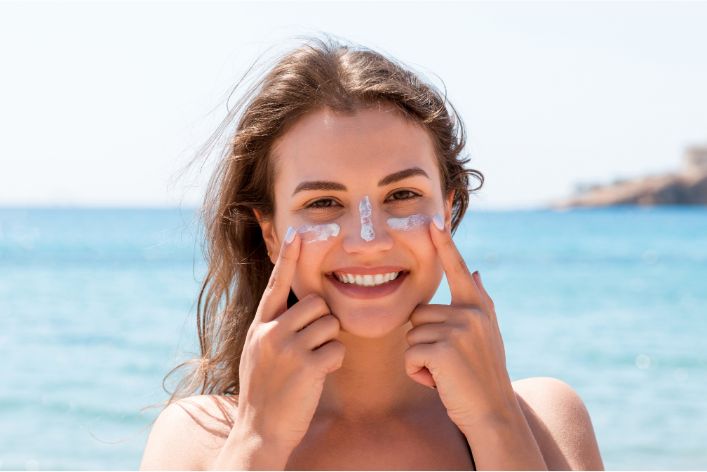
Tips for Protecting Skin and Staying Safe in the Sun
Spending time outdoors is a great way to stay active and enjoy the weather, but it’s important to remember to protect your skin from the harmful effects of the sun. Here are some tips to help you keep your skin safe and healthy:
General Tips:
- Wear sunscreen with an SPF of at least 30 and reapply every two hours
- Wear protective clothing such as hats, sunglasses, and long-sleeve shirts
- Seek shade during peak sun hours (10 am to 4 pm)
- Drink plenty of water to stay hydrated
- Avoid tanning beds and indoor tanning
Best Times to Avoid Sun Exposure:
- Avoid being outside during peak sun hours (10 am to 4 pm)
- Plan outdoor activities for earlier in the morning or later in the afternoon
- Check the UV index to gauge the sun’s intensity in your area
Warning Signs of Skin Damage:
- Changes in the color, size, or shape of a mole or freckle
- A sore that does not heal
- An itchy or painful spot on the skin
- A new growth or spot on the skin
- Rough or scaly patches on the skin
Remember to protect yourself from the sun year-round, not just in the summer months. Sunburns and skin damage can happen anytime the sun is out, even on overcast or cloudy days. By taking the proper precautions, you can enjoy the outdoors and stay safe in the sun.
Read: Are Probiotics a Crucial Part of a Healthy Diet?
Conclusion
The importance of sun protection cannot be stressed enough, as it goes beyond just protecting the skin from sunburns and premature aging. Consistent use of sunscreen plays a crucial role in preventing skin cancer, the most commonly diagnosed cancer in the world.
The main point of this post is to highlight the harmful effects of UV radiation on the skin and health. It is not just a cosmetic issue, but a matter of life and death.
With that in mind, it is essential to make sun protection a part of our daily routine. Along with using sunscreen, we can also protect our skin by wearing protective clothing and avoiding the sun during peak hours.
As we spend more time outdoors during the summer months, it is crucial to remember the importance of sun safety. Protecting our skin from the harmful effects of UV radiation is not just a temporary measure, but a long-term commitment to our health and well-being.
Read: Dispelling Myths About the Science of Weight Loss
Before You Go…
Hey, thank you for reading this blog to the end. I hope it was helpful. Let me tell you a little bit about Nicholas Idoko Technologies. We help businesses and companies build an online presence by developing web, mobile, desktop, and blockchain applications.
We also help aspiring software developers and programmers learn the skills they need to have a successful career. Take your first step to becoming a programming boss by joining our Learn To Code academy today!
Be sure to contact us if you need more information or have any questions! We are readily available.







